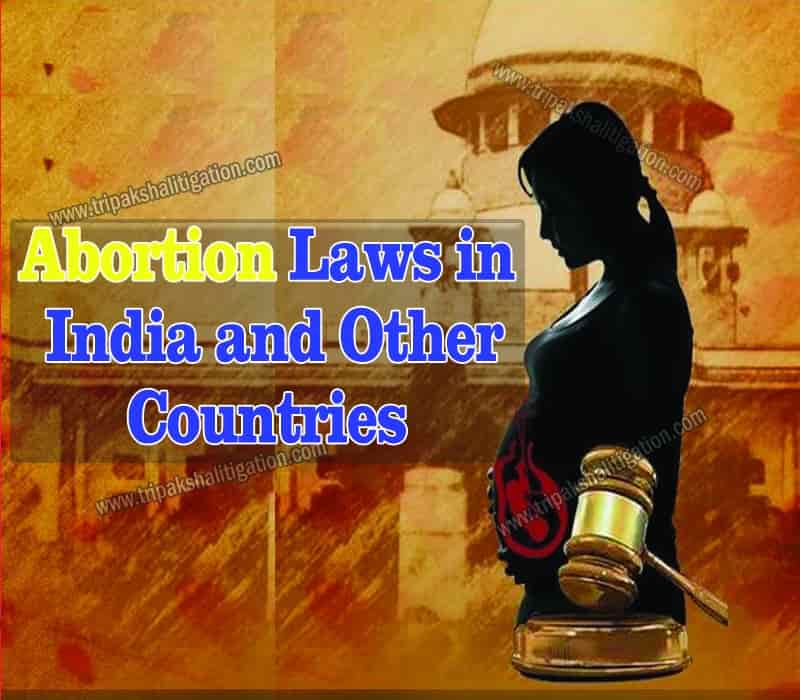INTRODUCTION
For a very long-time woman in India have been struggling with the grant of rights under many aspects. One of these aspects is the rights and freedom of reproduction but considering the ethics and morals in India these subjects have become controversial. As natural is the concept of reproduction and the potential to reproduce is something that sets the rights of the women different from men. But the irony is that the potential to reproduce does not make women capable of deciding the number of children they will have, they are helpless to have a control over their reproductive system irrespective of the potential that lies in the body of a women which is magical.
This concept brings us to a question, which talks about do women have access to safe birth controls? Do women have access to safe abortions? Do women have access to even sex education which should also be accessible to men? Do the society consider a women’s sexuality different from reproduction? Sadly, the answer to these questions is a big NO. This led to the emergence of women’s rights in different parts of the world raising awareness among women regarding the functioning of their bodies and safer options to keep their health intact
WHAT IS ABORTION
An abortion is the removal or expulsion of an embryo or foetus from the uterus, resulting in, or caused by, its death. This can occur spontaneously as a miscarriage, or be artificially induced through chemical, surgical or other means. Commonly, “abortion” refers to an induced procedure at any point in the pregnancy; medically, it is defined as a miscarriage or induced termination before twenty weeks gestation, which is considered nonviable.
ENVISIONING ABORTION AS HUMAN RIGHTS
Human rights are those rights that should be available to all citizens irrespective of any discriminating factor. No one should be deprived of human rights in any way. Considering abortion rights as a human right is like giving light to buried rights of women specifically. It also covers the right to life which is a universal right inherited by a human being from their very birth. Earlier, was not given the recognition of a right as the society is highly opposed to it. However, with the progress in time and approach of the society this area of concern came to surface and got its recognition. It is an individual’s right to enjoy their life with liberty and happiness. These rights support the rights of abortion of a woman to lead her life with happiness and at her own will and liberty. Every woman has a right to manage her body, which is sometimes also considered as right to physical health. Thus, abortion is an essential right that is vested in the interest of the women.
ABORTION- A GLOBAL PERSPECTIVE
In March 2021 the Medical termination of Pregnancy (amendment act) obtained Presidential assent. The act was modified for the number of weeks a woman can terminate her pregnancy. The number of weeks were increased. The MTP Act was modelled after the Abortion Act of 1967, which had been approved in the United Kingdom when the former was initially implemented in 1971. The legal purpose was to grant a qualified ‘right to abortion,’ and abortion has never been accepted as a common option for expecting women. Therefore, legalizing abortion was never the intention of the legislature.
In other parts of the world abortion is still something that is a controversial topic. It was a struggle for the legislature to come with laws regarding abortion because it caused serious health issues to women. In many countries of the world abortion is still conditional or illegal. A woman can only abort the pregnancy if its causing serious threat to her life or in case of rape. Abortion is a big debate around the world due to variation in perspectives and philosophy. Those advocating against the rights of women say that the foetus is a living being that inherits the right to life in it and a boarding a foetus tantamount to murder on the other hand those advocating for the rights of women claim that ‘life’ begins only after the foetus is ‘viable’ i.e. it can survive outside the mother’s body. Somewhere between these deviating perspectives lies the rights of both the woman and the child. The right of the woman to go ahead with the pregnancy and the right of the child to live. A large majority of countries still ban abortion, around 2 dozen entirely ban it. Around 100 countries have restrictions and permit abortion on under certain situations considering the socio economic and other mental and physical health issues of the woman. The WHO first recognized unsafe abortion as a public health problem in 1967, and in 2003 it developed technical and policy guidelines that include a recommendation that states pass abortion laws to protect women’s health. According to the UN Population Fund, addressing the unmet need for family planning would both considerably reduce maternal mortality and reduce abortion by up to 70 percent in the developing world.
LEGAL ASPECTS ATTACHED TO ABORTION
As far as India is concerned, there are many statues, which deal with this point. Now we enumerate Indian law to ascertain stance from both sides i.e. mother and unborn child. Section 312 of the INDIAN PENAL CODE, 1860 causes miscarriage punishable. It says:
312. Causing miscarriage. – whoever causes a woman with child to miscarry, shall, if such miscarriage be not caused in good faith for the purpose of saving the life of the women, be punished with imprisonment of either description for a term which may be extend to three years, or with fine, or with both; and if the woman quick with child, shall be punished with imprisonment of either description for a term which may extend to seven years, and shall also be liable to fine.India’s Supreme Court has said that all women, including those not married, could get an abortion up to 24 weeks. This ruling came seeking clarity on the amended 2021 abortion laws which did not include single women. The court said that all women regardless of their marital status will be entitled to safe and legal abortion. The court also added that excluding single women in consensual relationships will be unconstitutional. Abortion was legal in India since 1971 but over the years authorities have made strict rules as to who can terminate the pregnancy because of the large number of abortions leading to a terribly unbalanced gender ratio in the country. From very beginning Indians have shown preference to male child rather than a female child. Last year the government amended the Medical Termination Act(MTP) to allow several categories of women to seek abortions between 20 and 24 weeks. This list included rape survivors, minors, women with mental disabilities, women with fetuses that had major abnormalities and married women whose marital status changed during the pregnancy. This judgement also clarified that it did not distinguish between married and unmarried women and that it must also include unmarried women in consensual relationships.
UNITED STATE LAWS DEALING WITH ABORTION
Roe v. Wade is one of the most politically significant Supreme Court decisions in history, which reshaped the national politics. This is a landmark United States Supreme Court decision establishing that most laws against abortion violate a constitutional right to privacy, thus it overturned all state laws outlawing or restricting abortion that were inconsistent with the decision.
Roe, the plaintiff wanted to terminate her pregnancy because she contended that it was a result of rape. Relying on this situation the decision established a system of trimesters that attempted to balance the state’s legitimate interests with the individual’s constitutional rights. The Court ruled that the state cannot restrict a woman’s right to an abortion during the first trimester, the state can regulate the abortion procedure during the second trimester in ways that are reasonably related to maternal health, and in the third trimester, demarcating the viability of the feotus, a state can choose to restrict or even to forbid abortion as it sees fit.
The supreme court has ruled there is no constitutional right to abortion in the United States, upending the landmark Roe v Wade case from nearly 50 years ago in a rare reversal of long-settled law that will fracture reproductive rights in America.
CONCLUSION AND COMPARISION
This comparison shows that Indian laws on abortion are much more progressive as compared to that of the USA. Though the USA was early to declare abortion as a part of a woman’s ‘zone of privacy’ through the judgment of Roe vs Wade, India recognized female’s right to abortion has her Right to personal liberty guaranteed under Article 21 years later, India was quick to consider the position of the females to give birth and to raise the child out of an unwanted pregnancy coupled with the life of the prenatal child. The abortion laws in the USA are strict and restrictive since the country majorly focuses on the rights of the prenatal child and largely neglects the mental health risks and other bodily integrity. Therefore, while drafting abortion legislation, all the countries should consider the right of the female, the rights and health of the prenatal child, and the physical and mental condition of the women if she is not allowed to terminate her pregnancy. In this way, the law will be fair and just. It makes me feel proud to write about the rights of women that have got recognition. But sadly, talking about the legal aspects provided solely to women, progress. But it took us so long, shame.
You may contact me for consultation or advice by visiting Contact Us and Call us









Decision are appreciated.
Man or woman are born free should be free.
very informative .it is great to know that the time granted for abortion has been increased to 24 weeks additionally allowing unmarried and married women to access abortion services is a positive step forward